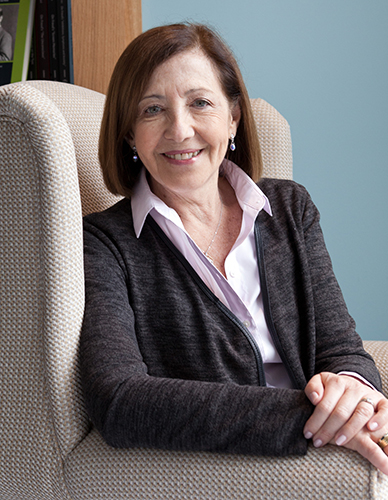

On the occasion of 2018’s
International Women’s Day, former IPA President, Virginia Ungar, reflects on the challenges that women around the world still face and the role that psychoanalysis has in understanding and overcoming them.
This year’s International Women’s Day campaign -
#PressforProgress - calls for gender parity, a theme that I think resonates with the entire psychoanalytic community.
We are living in a historical juncture that is both exciting and deeply disturbing – that has brought progress and improvements in many spheres of life, and pain and suffering in others. Women’s situation is a case in point. As more and more women are able to get a university degree, hold managerial jobs and are appointed to top government positions, we are witnessing an increase in domestic violence, including femicides, the rape culture is commonplace in many countries across the world, and women are the main victims of violence worldwide.
Preventing and responding to violence against women requires a multi-sectoral approach, and I believe that, as psychoanalysts, we all have a part to play. To bring about lasting change, we need to understand and we need to plan, both of which require different perspectives and different ways of thinking.
I am very pleased and encouraged by the work of our Women and Psychoanalysis Committee (COWAP), who have been leading the way in the exploration of topics that primarily concern women. The Committee has organised a series of Conferences this year (see our
Events page), bringing together psychoanalysts, scholars from social sciences, psychiatrists and psychologists to debate and share reflections on these vital topics.
Our field has much to contribute to the gender parity effort. The history of psychoanalysis is brimming with insightful female theorists. Women were the first to focus on children’s psychic development and treatment, helping to realise the significance of research into this field for psychoanalysis as a whole. Furthermore, female psychoanalysts have pointed to the specificities of the female psyche and to the relevance of gender to psychoanalytic theory and practice. The knowledge that we have gathered in these areas could prompt enriching debate with colleagues in related fields and help to overcome some of the challenges preventing gender parity.
This multidisciplinary way of working is strongly supported by the current administration and it forms a major part of our vision for our term in office.
Our next
IPA Congress in London on 25-29 July 2019 will provide a unique and valuable opportunity for interregional debate and enriching exchanges on the theme of “The Feminine”.
Our discipline has had, and continues to have, a great impact on different spheres of social life, including medicine, education and the legal system to name a few. We need to expand our field by working with professionals in related disciplines to tackle complex situations such as family violence, abuse and addiction.
So, this International Women’s Day, let’s celebrate the significant contributions that women have made to psychoanalysis, whilst recognising the continued role our field has in pushing for gender parity.